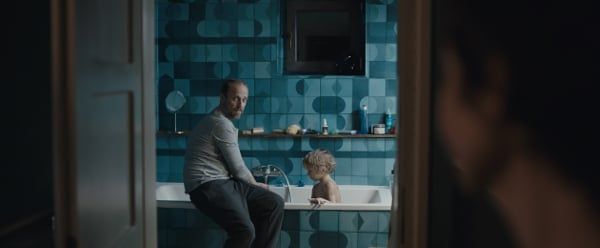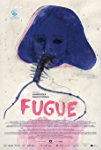Eye For Film >> Movies >> Fugue (2018) Film Review
Fugue
Reviewed by: Amber Wilkinson

There is a current, albeit small, trend for actresses in their forties and fifties, presumably fed up with a lack of decent parts crossing their desk, picking up a pen to write something for themselves. Notable successes recently include Mirjana Karanovic's A Good Wife and Karen Teles' Loveling. Here, Polish star Gabriela Muskala makes her screenwriting debut with a Scandi-noir inflected drama that puts her own performance front and centre. The result is somewhat derivative in terms of plot but helped enormously by the presence of The Lure director Agnieszka Smoczynska, who infuses the action with an unsettling ambience.
It could almost be a horror film at first, as we see Muskala's Alicja clamber onto a train platform from the tracks her power dressing and vertiginous heels at odds with her strange behaviour. It turns out that she is even a stranger to herself, having suffered a dissociative fugue that has left her with no memory of her life before a fight with a policeman. A TV appeal sees her reunion with her 'family', but they know her as Kinga. The strained situation is put under additional pressure by the fact that Alicja/Kinga has no recollection of where she has been for the previous two years and no memory of her husband Krzysztof (Lukasz Simlat) or young son Daniel (Iwo Rajski).

While some of the emotional territory here recalls Lenny Abrahamson's Room and last year's Danish Oscar entry You Disappear, the film's most interesting aspect is the way that forgetfulness can cut both ways, particularly for Daniel, who has little recollection of his mother and is as reluctant to bond with her as she initially is with him. The action feels muted, with Smoczynska and cinematographer Jakub Kijowski favouring the blues they loved so much in The Lure, against an otherwise drained palette and hard light, and though the mood is generally odd, there's a reticence to exploit the psychological tensions that leaves the narrative also feeling watery and washed out. Though muting the way information is revealed keeps the focus on Alicja's reaction to it, the revelations themselves might be viewed as rather pedestrian for fans of this sort of memory-loss set-up.
Smoczynska remains one to watch. She has a signature style and an ability to generate a sense of odd estrangement from virtually nothing, such as when husband and wife are seen dancing after a brittle night out or when Alicja faces a moment of confusion at the beach, the sounds suddenly crashing in on her as reality seems to recede. This ability to generate emotion above and beyond the script, makes her a potent potential gun for hire, who if coupled with a screenplay that matches her talents, is likely to start raking in awards.
Reviewed on: 20 May 2018















